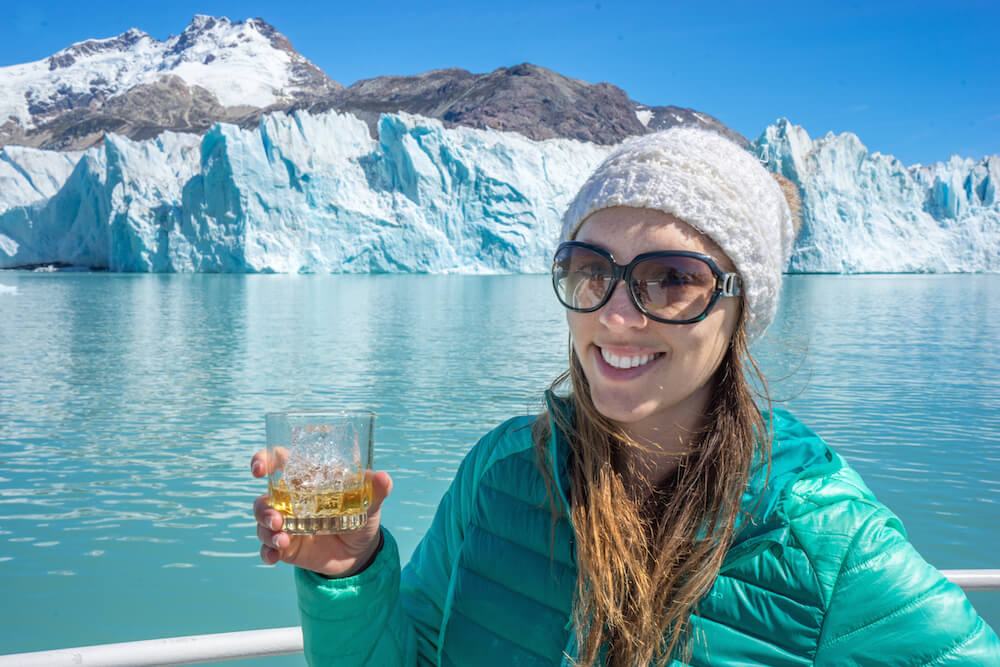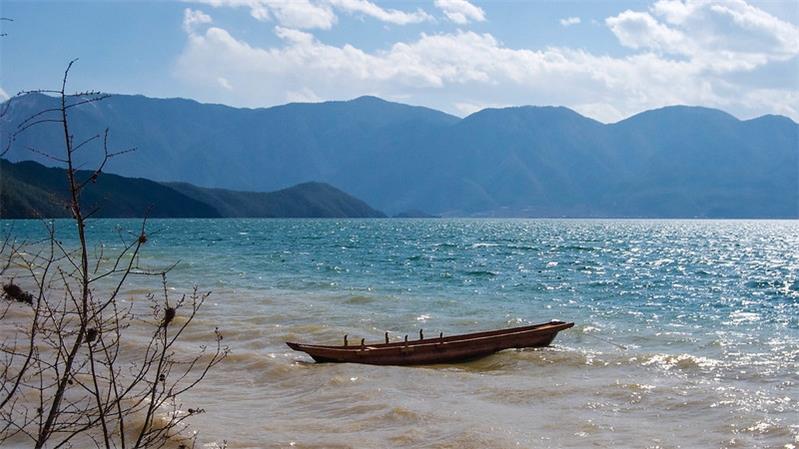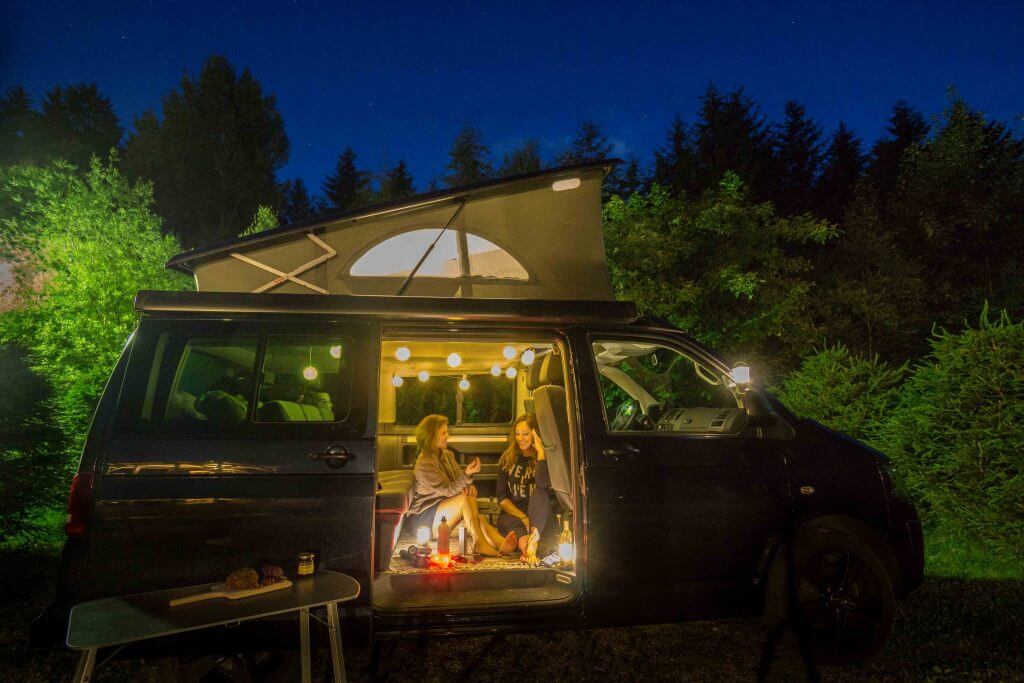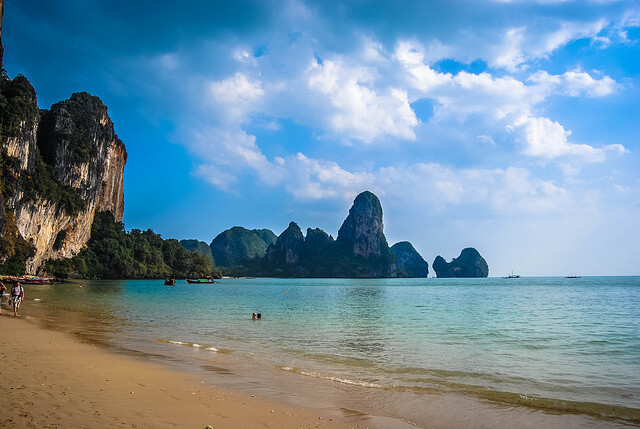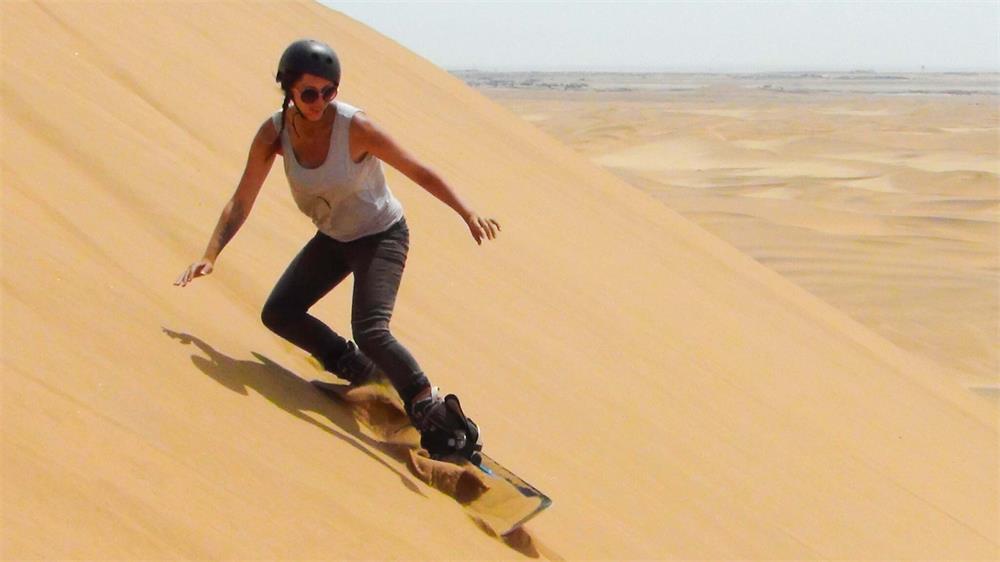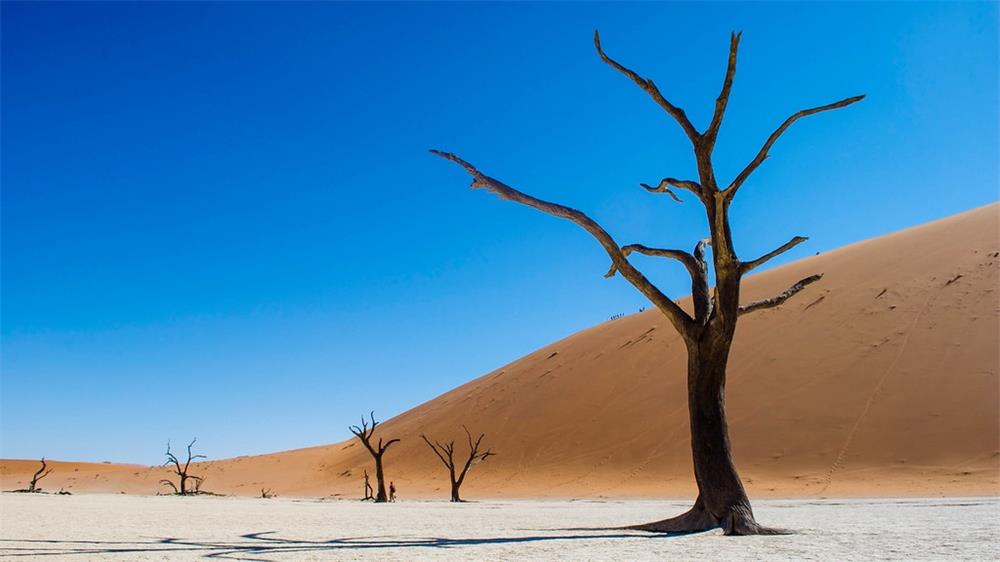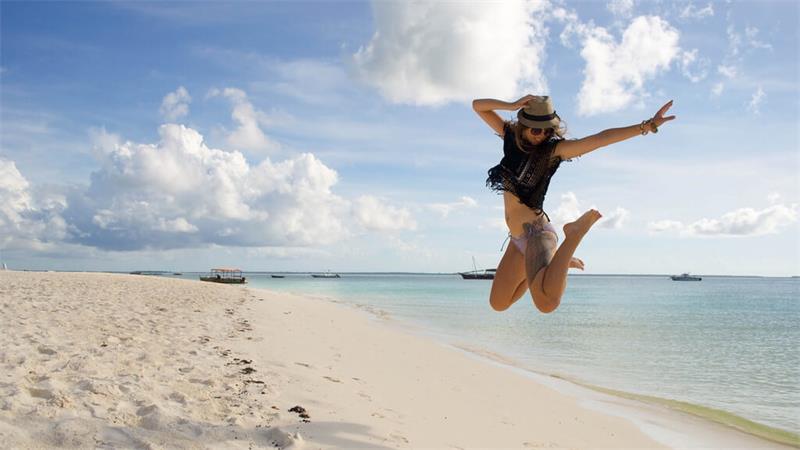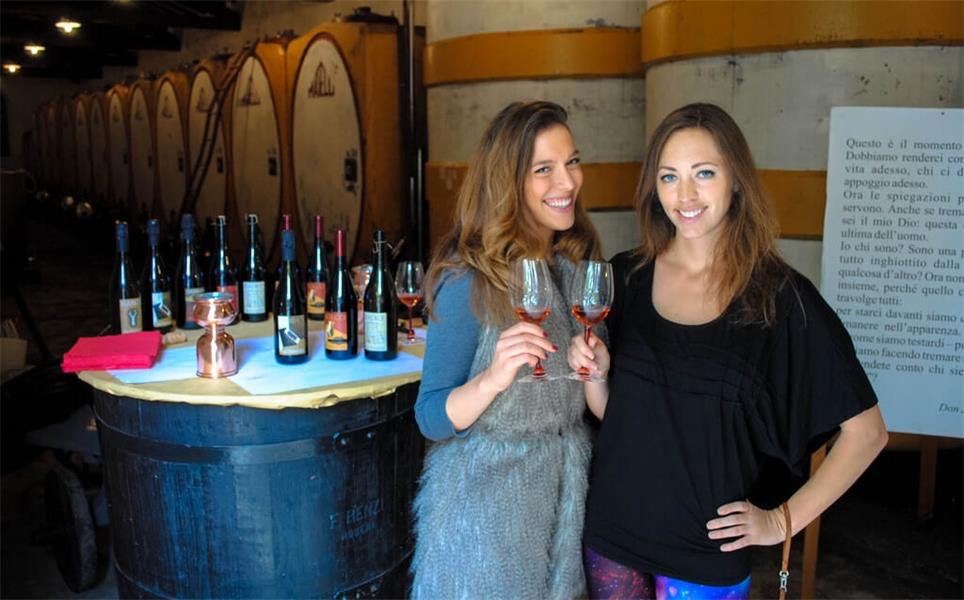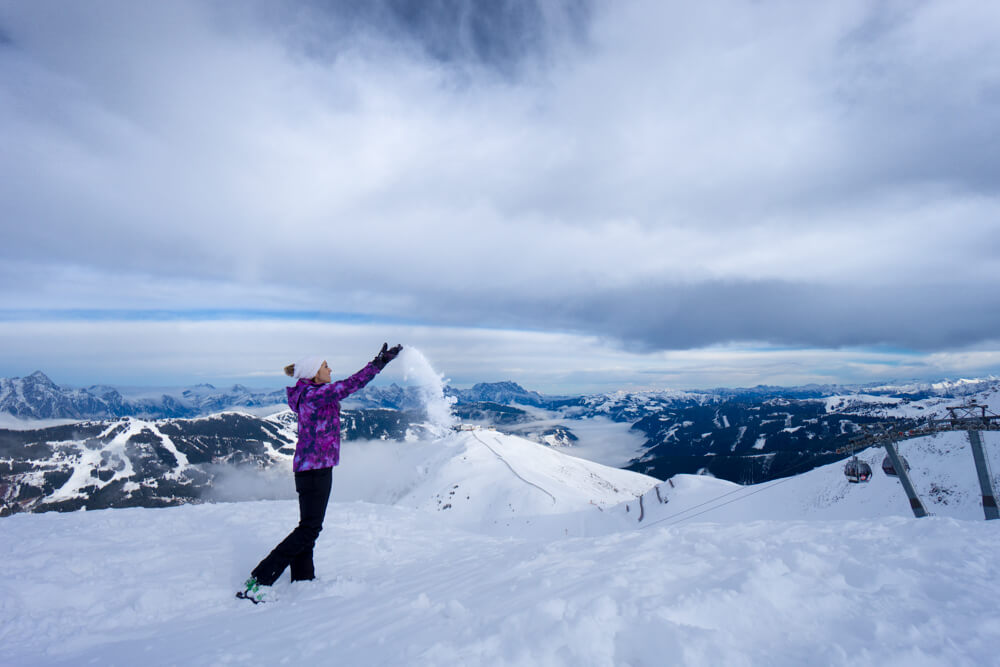
My mother tells me that I was four the first time I tried skiing. I don’t recall, but she stated that instead of attempting to learn to ski, I spent much of the time eating snow.
To be told, I still enjoy eating snow (I know, don’t eat yellow snow!), but now I’m also much more open to exploring the sporting element of it. So at 29, I took up skiing again to finally learn how to do it right.
I was a little hesitant to learn to ski because of the shoulder surgery I underwent a few years ago. Additionally, tumbling down a mountain face to face on two smooth composite components just seemed absurd to me. I didn’t grow up in a location with a lot of snow, so winter isn’t something I’m used to either. I was a newbie in every imaginable meaning of the word.
It’s a question of tiny steps, though, and now I truly like to ski. This is my guide on skiing for beginners and winter novices in general:
Get an instructor

I know your closest friend, lover, or relative probably believes they know everything about skiing, but if you’re a beginner, or even a bit more intermediate or advanced, a skilled teacher will make your learning experience that much simpler.
You may take a group class, but for me, a private teacher helped me to progress far faster. I was already on the mountain and off the practice trails on the second day since we could move at my pace and all the instructions were suited to my ability and learning speed. A private tutor where I learned in Saalbach, Austria charges €80/day.
Push until you feel confident
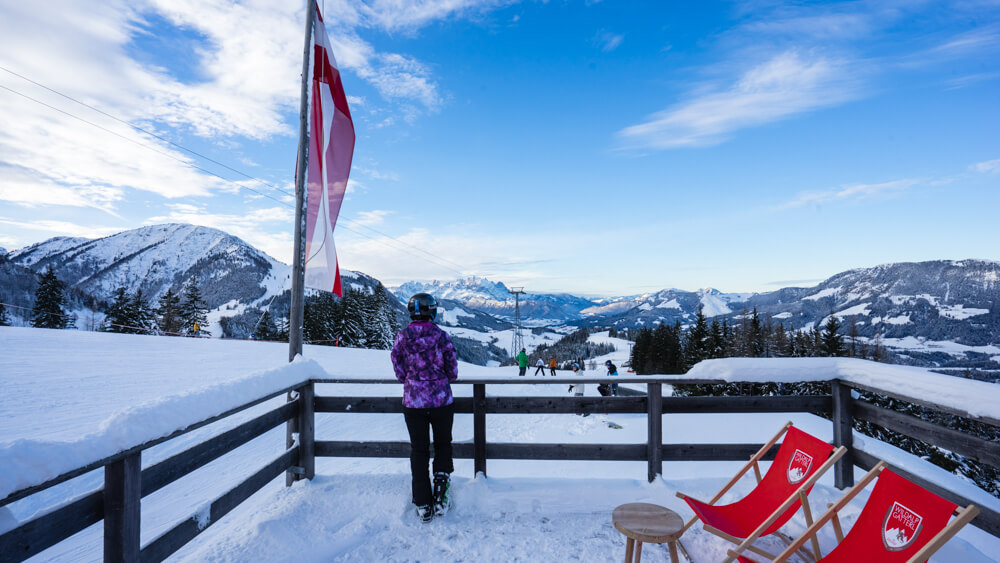
Plowing is what you do when you expand your legs and pull the front of the skis closer together, like a slice of pizza. Once you learn to turn, you’ll be tipping your upper body down and your knees up the hill. There is another option to slow down during a downhill.
Over time, you may pursue less snow and let go a little more when you’re comfortable with speed and technique. Sometimes you only need to move slowly, don’t forget the snowplow.
Realize that it’s far more mental than physical
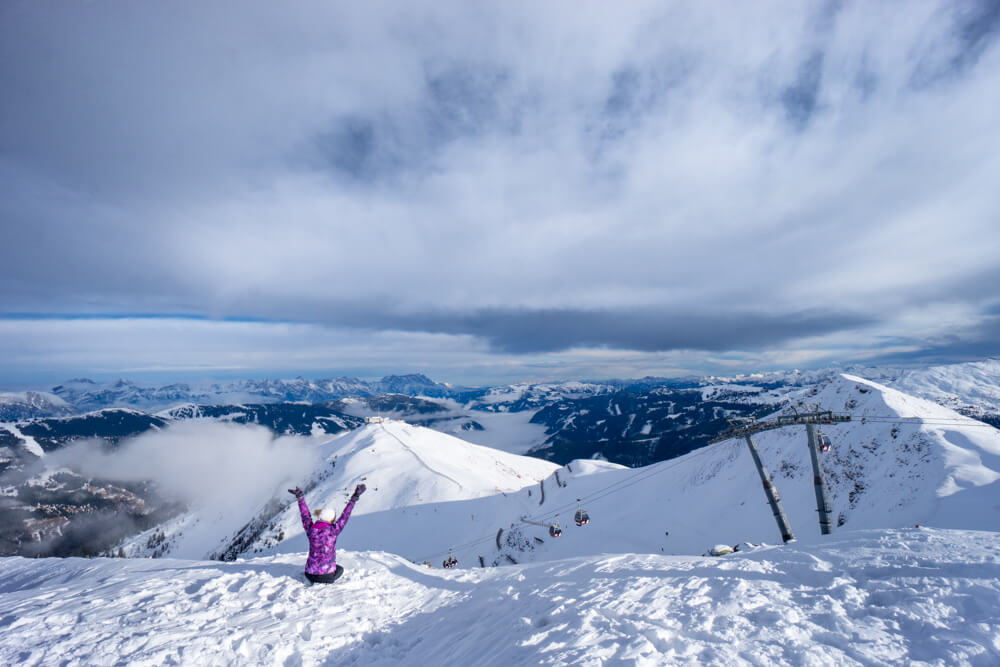
I watched kids as young as four on the slopes making the same maneuvers as me and knew it wasn’t an issue of physical ability. It’s actually all mental.
However, if you start becoming negative about the sport or end on a terrible run and want to leave, please try again. I had a similar day and really wanted to quit, but the next day I had a much better run and eventually got my groove. From there, I finally appreciated it.
Think less, move more
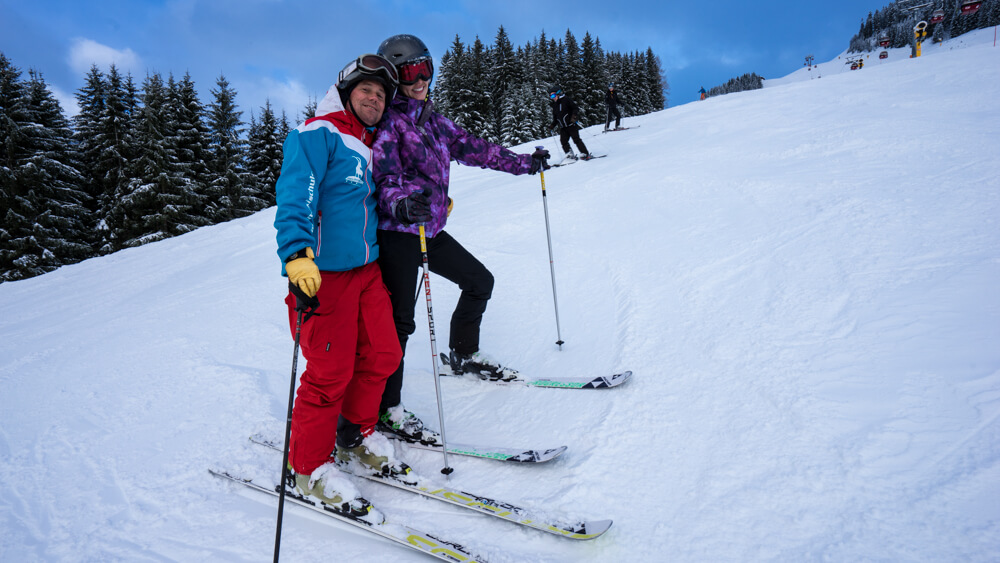
Youngsters fall less and worry less because they don’t worry about prior injuries or become confused with other sports they’ve played that entail different body motions, which troubled me all. They basically replicate what the instructor does and tend to learn faster.
The more you are worried and the more you obsess over every little thing, the more difficult it will be. Skiing for a novice will nearly always include some slips and blunders, but over time you will discover your rhythm. Like practically every sport I can think of, getting better merely requires practicing more.
Be patient with yourself
You can have a wonderful run only to be followed by a run when you crash more, feel less confident, and need more support. It’s absolutely natural, because if you think about everything you’re excellent at, if you’re honest with yourself, you’ve had your ups and downs, haven’t you?
The skiing is the same, especially when the conditions on the mountain vary and you become weary. Don’t be disheartened, keep going!
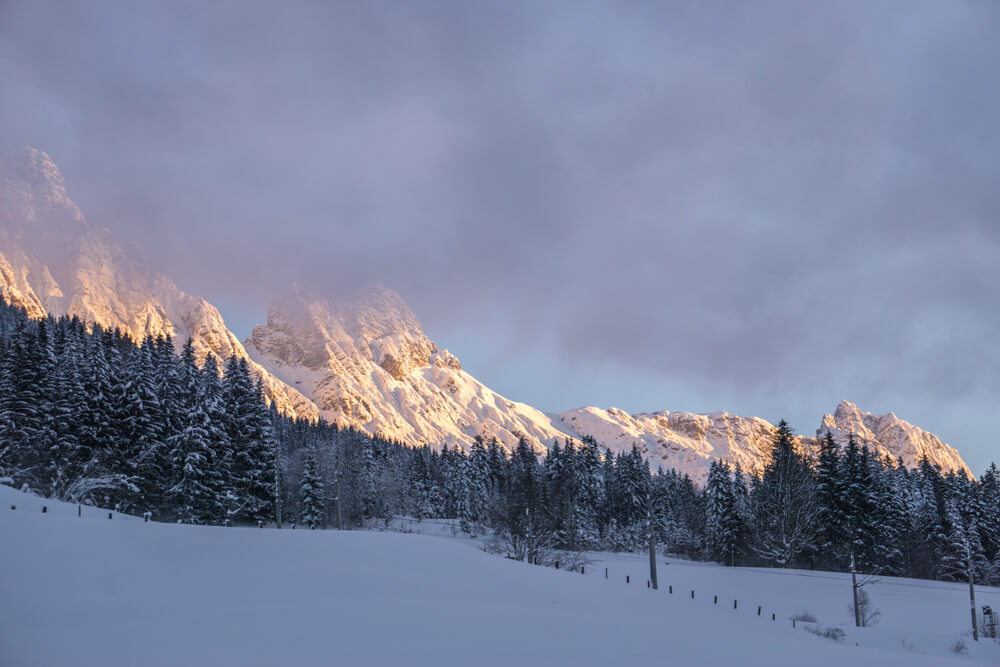
Find a ski location with plenty of alternatives to keep everyone pleased
Most of the time I skied with my teacher because my pals were all at various levels. I had a few Mozambique Friends coming who were more interested in off-piste snowboarding as they are much more experienced than me, plus a couple of skiers who were more intermediate.
We were skiing at Skicircus which spans three separate valleys and two regions of Austria, giving 270 kilometers of pistes between Saalbach Hinterglemm, Saalfelden Leogang and Fieberbrunn. There were loads of trails for me as a novice, many red runs for the advanced men, and plenty of off-trail (backcountry) trails as well. Everyone was pleased that way, and the view was wonderful.
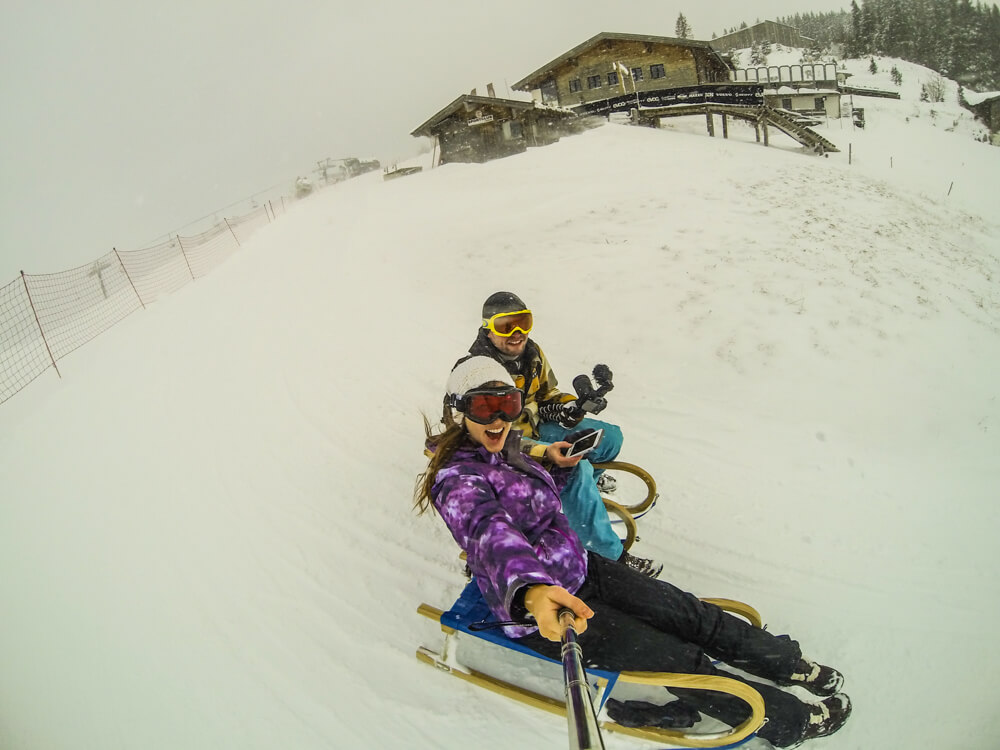
Take a rest and conduct other tasks in between
There are dozens of things you can do besides skiing in mountains like the Alps in Austria. My favorite was sledding on the grassy hills. You just ride the gondola, maybe drink a schnapps or two at the Alm at the top, then toboggan back down, rinse, repeat. Extra points if you get into a snowball battle midway.
I also snowshoed into the winter wilderness, which I can’t recommend highly enough. It’s really good to take a break from the slopes and get some quiet. The tourism office in Saalbach-Hinterglemm arranges the treks for free if you are there.
I also can’t leave out après-ski, which is something Austria is known for – it’s German schlager songs with repetitive lyrics that make no sense, a big crowd of people dancing and singing while drinking hot drinks or cold beers, and everyone comes down after, or in my case, slipping on a plastic bag. It was so much fun!
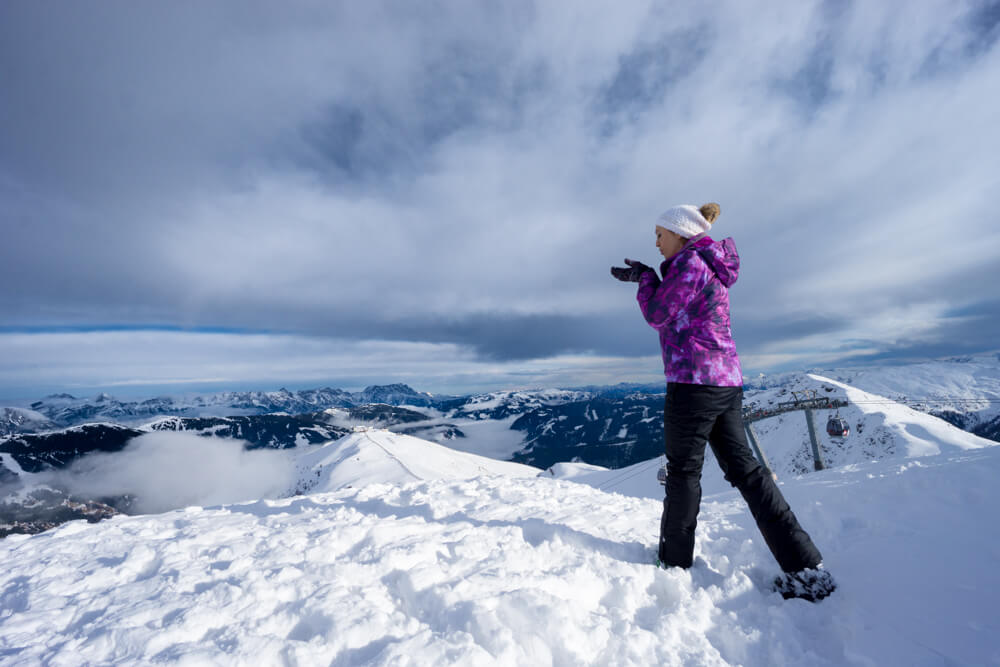
Pack the good stuff
If you are a rookie in winter and skiing like me, then you might want to have a look at my packing list to make sure you bring everything you will need for a ski vacation.
Although I disliked the cold and winter, and especially skiing, before I tried it, I am so delighted to say that I have a new addiction to sports, and you will see a lot more of it from me. If I can accomplish it, so can you. If you have any advice for novice skiing, post them in the comments!
In the interest of full disclosure, this content has been brought to you in partnership with the Skicircus in Austria. That said, these recommendations still ring true. Nice skiing!

